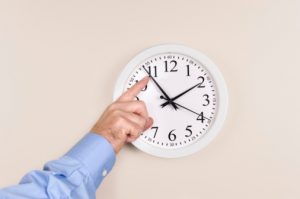 Clocks spring forward one hour this Sunday and many are not prepared to lose this extra hour of sleep. Daylight saving time occurs this weekend, meaning clocks will jump forward one hour early Sunday morning and leave many feeling sluggish. Combat this seasonal tiredness with some tips compiled from doctors across the country so that this Sunday morning sees you bright-eyed and with a spring in your step.
Clocks spring forward one hour this Sunday and many are not prepared to lose this extra hour of sleep. Daylight saving time occurs this weekend, meaning clocks will jump forward one hour early Sunday morning and leave many feeling sluggish. Combat this seasonal tiredness with some tips compiled from doctors across the country so that this Sunday morning sees you bright-eyed and with a spring in your step.
First, the American Academy of Sleep Medicine recommends taking a preemptive approach by heading to bed 15 or 20 minutes earlier in the days before the time change. This can help your body adjust to an altered sleep schedule more gradually and make waking up an hour early on Sunday less jarring.
Advertisement
Unfortunately, Dr. Praveen Rudraraju—medical director of the Center for Sleep Medicine at Northern Westchester Hospital—has asserted that prevention may not work for everyone and many will still have trouble adjusting to the change. He explained, “… it may take some people up to a week to get used to the new time change. Though it may be tempting to stay up an extra hour, one of the best ways to fight the effects of daylight saving time is to go to bed at your usual time.” Losing an hour may result in you not feeling tired at your usual bedtime, but Dr. Rudraraju warns against staying up for that extra hour as it will throw off your sleep schedule even further and make it harder to wake up at your normal time.
Saul Rothenberg, a behavioral sleep medicine specialist at Northwell Health likened the time change to a case of jet lag, stating, “It’s like flying from Chicago to New York. Good sleepers may not even notice a difference.” If you aren’t a good sleeper, however, Rothenberg also offered some tips to ease the transition. He asserted the importance of waking up at your regular time on Sunday morning and recommended that you avoid napping during the day so that when bedtime rolls around you’ll have an easier time falling asleep.
Dr. Rudraraju offered additional advice to help regulate your sleep schedule. He suggested that for the first few weeks following the change, you should try to wake up between five and ten minutes earlier every two to three days. He also highlighted the importance of exercise, recommending you get 30 to 40 minutes every day, preferably in an area with bright light or sunlight and before 5:00 p.m. Finally, Dr. Rudraraju explained that dinner should be eaten three to five hours before bed and caffeine should be avoided in order to prevent sleep disruptions.
While the time change this weekend is arguably much harder to adjust to than the one that occurs in the fall, sticking to your normal sleep schedule and avoiding factors that may increase your risk of sleep disturbances can help you better manage that lost hour of sleep.
